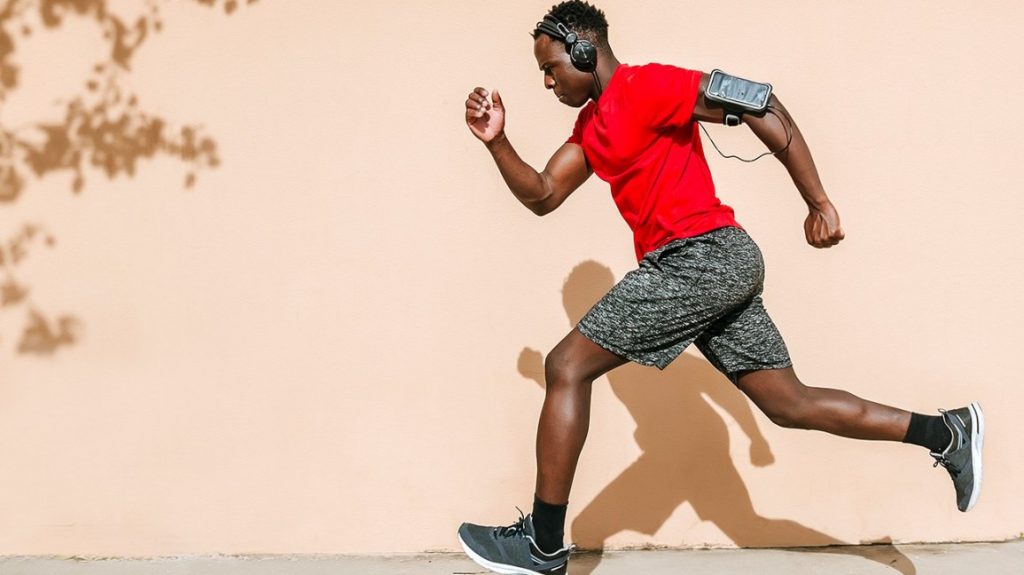So what can you do to protect yourself against the new coronavirus and other germs? First of all, focus on preventing exposure to and spread of pathogens, Experts say. Wash your hands, and if you cough or sneeze, do so into a tissue and throw that tissue away. (The CDC has published additional guidelines on how to prevent exposure to and spread of the new coronavirus.)
The other part of the equation is practicing the health-promoting behaviors that keep your own immune system functioning at top capacity (and that help prevent underlying chronic health problems that ultimately do make you more susceptible to infections), according to Lin and Starnbach. More specifically:
Get enough sleep. Healthy sleep supports the immune system in a lot of really critical ways, Lin says. Research finds that there are actually very important parts of the immune response that occur during the different stages of sleep and are regulated by our bodies’ circadian systems.
Besides that it is crucial to eat healthy foods, including lots of nutrient-rich fruits and vegetables. The vitamins and minerals in our food are the lifelines all the systems in our body rely on to function well (including the immune system); the better you feed the body with the nutrients you need, the better it runs and can avoid chronic and acute disease, according to the Academy of Nutrition and Dietetics. (Also avoid consuming excessive amounts of alcohol, which can interfere with immune functioning, according to an Alcohol Research review paper from 2015.)
Stay active but moderately
. Researchers haven’t yet pinpointed the mechanism through which staying active keeps the immune system functioning best, but they do know exercise helps keep other systems in the body functioning properly, so they suspect there’s a link, according to NIH. (There’s even evidence that older adults who exercise regularly can keep their immune systems functioning similarly to people decades younger, according to a study published in April 2018 in Aging Cell.)
A cascade of viral particles enters the body through the nose, eyes or mouth. Breathing carries some of these particles to the lower part of the respiratory tract where the spike proteins of the coronavirus, acting like a key, grip into epithelial cells that line the respiratory tract as well as those in the the airsacs in the lungs.
SARS-CoV-2 is able to stay undetected longer than many flu or coronaviruses and its spike proteins are able to gain entry by unlocking the ACE2 protein on the lung cells. Once in, they hijack the cell’s machinery, replicate and multiply and infect adjoining cells. Like the defining ACE2 proteins on the epithelial cells, viruses too have a tell-tale signature on their surface called antigens and spotting these is what kicks the immune system into play by producing antibodies to fight the virus.
How to sleep with an intention to beat stress?
To alleviate those effects, recording enough sleep hours at night is the best bet.The National Sleep Foundation recommends adults get seven to nine hours every night.
What about a nap, though? It can help, and the effects are immediate. “If you’re excessively sleepy, which can increase stress levels, studies suggest that a well-planned nap can be beneficial,” Aloia says. A study published in March 2015 in The Journal of Clinical Endocrinology & Metabolism found that a 30-minute nap helped reduce stress in men who had slept only two hours the night before.
Two rules you need to remember:
Keep that nap under 40 minutes, and time it so that you’re napping in the early afternoon, generally before 2 p.m. Nap too long or too late in the day, and you’ll have a tougher time falling asleep during the same night.
Exercise keeps stress hormones at bay
The connection between exercise and stress is better understood. “Although we don’t know the exact mechanisms behind it, we know that exercise helps reduce stress,” says Jack Raglin, PhD, professor of kinesiology at Indiana University in Bloomington.
You may have heard of a “runner’s high” — that euphoric feeling people often report after logging a marathon aerobic workout courtesy the release of feel-good neurotransmitters called endorphins, chemicals in the brain that act as the body’s natural painkillers and mood elevators, essentially calming you down and making you feel good.
“A cocktail of hormones, including dopamine and endocannabinoids, interacts when you exercise, and together, they help dissipate stress,” Dr. Raglin says.
This neurochemical effect of exercise, in addition to stimulating these stress-busting hormones, also reduces levels of adrenaline and cortisol, your body’s stress hormones, helping you better manage stress.
PNN/Agencies
